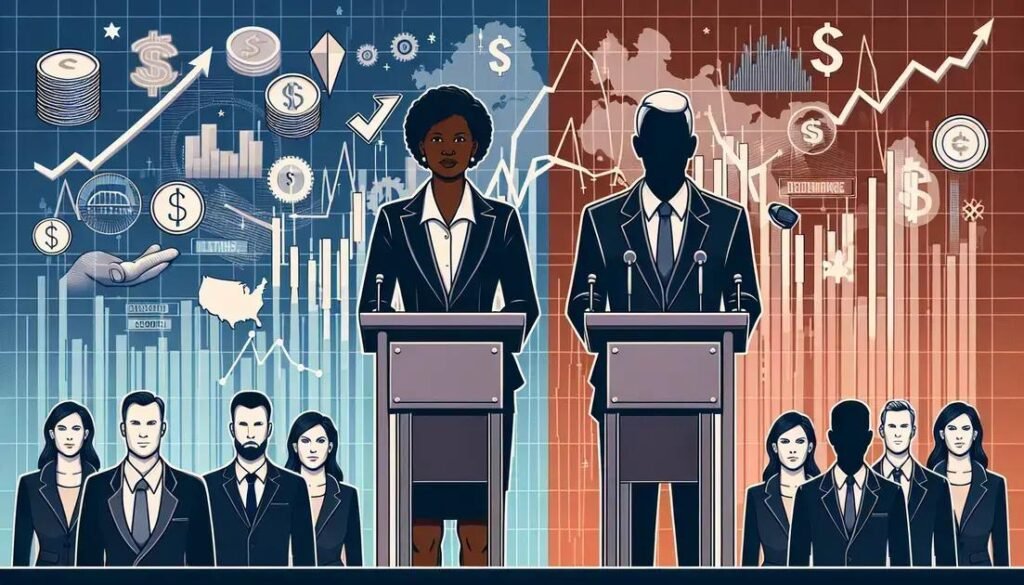As the world grapples with the complexities of global politics, the concept of democracy has become increasingly relevant.
With its roots in ancient Greece, democracy has evolved over time to become a cornerstone of modern governance.
Yet, despite its widespread adoption, democracy faces numerous challenges in the 21st century.
Veja também: How AI Could Replace Your Job: What You Need to Know
In this post, we’ll delve into the definition of democracy, its evolution, and the obstacles it must overcome to remain a viable system of governance.
Defining Democracy
Democracy can be defined as a system of government where power is held by the people, either directly or through elected representatives. It is a system that prioritizes the protection of individual rights, promotes social justice, and ensures equal opportunities for all citizens. In a democratic system, citizens have the right to participate in the decision-making process, either directly or through their elected representatives. This includes the right to vote, to express opinions, and to hold elected officials accountable for their actions.
The concept of democracy has undergone significant evolution over time. From ancient Athens to modern-day democracies, the system has adapted to changing circumstances and societal values. The rise of representative democracy, where citizens elect representatives to make decisions on their behalf, marked a significant shift from direct democracy. The evolution of democracy has also been influenced by technological advancements, globalization, and social movements. Today, democracy is a cornerstone of modern governance, with many countries embracing democratic principles and institutions.
Despite its widespread adoption, democracy faces numerous challenges in the 21st century. These challenges include political polarization, disinformation, and the erosion of trust in institutions. Additionally, economic inequality, social media manipulation, and external interference in elections pose significant threats to democratic systems. Furthermore, the rise of authoritarianism and nationalism has led to a decline in democratic values and institutions in many parts of the world.
Technology has the potential to both empower and undermine democracy. On the one hand, technology can facilitate citizen engagement, increase transparency, and promote accountability. For example, social media can be used to mobilize citizens, promote civic education, and provide access to information. On the other hand, technology can also be used to spread disinformation, manipulate public opinion, and undermine trust in institutions. Therefore, it is essential to ensure that technology is used in a responsible and transparent manner to support democratic values and institutions.
The future of democracy is uncertain and depends on various factors, including technological advancements, societal values, and political leadership. While some experts predict the decline of democracy, others believe that democracy can adapt and evolve to meet the challenges of the 21st century. It is essential to promote democratic values and institutions, protect individual rights, and ensure equal opportunities for all citizens. By doing so, we can ensure that democracy remains a cornerstone of modern governance and a beacon of hope for future generations.
The Evolution of Democracy

The concept of democracy has undergone significant transformations over time. From ancient Greece to modern-day democracies, the system has adapted to changing circumstances and societal values. The rise of representative democracy, where citizens elect representatives to make decisions on their behalf, marked a significant shift from direct democracy. The evolution of democracy has also been influenced by technological advancements, globalization, and social movements. Key milestones in the evolution of democracy include the Magna Carta, the American Revolution, and the French Revolution. These events have shaped the modern concept of democracy and its principles, such as the protection of individual rights and the rule of law.
Despite its widespread adoption, democracy faces numerous challenges in the 21st century. Political polarization, disinformation, and the erosion of trust in institutions are some of the key challenges democracies are facing. Economic inequality, social media manipulation, and external interference in elections also pose significant threats to democratic systems. Furthermore, the rise of authoritarianism and nationalism has led to a decline in democratic values and institutions in many parts of the world.
Technology has the potential to both empower and undermine democracy. On the one hand, technology can facilitate citizen engagement, increase transparency, and promote accountability. For example, social media can be used to mobilize citizens, promote civic education, and provide access to information. On the other hand, technology can also be used to spread disinformation, manipulate public opinion, and undermine trust in institutions. Therefore, it is essential to ensure that technology is used in a responsible and transparent manner to support democratic values and institutions.
The future of democracy is uncertain and depends on various factors, including technological advancements, societal values, and political leadership. While some experts predict the decline of democracy, others believe that democracy can adapt and evolve to meet the challenges of the 21st century. It is essential to promote democratic values and institutions, protect individual rights, and ensure equal opportunities for all citizens. By doing so, we can ensure that democracy remains a cornerstone of modern governance and a beacon of hope for future generations.
Challenges Facing Democracy
Democracy faces numerous challenges in the 21st century, including political polarization, disinformation, and the erosion of trust in institutions. Economic inequality, social media manipulation, and external interference in elections also pose significant threats to democratic systems. Furthermore, the rise of authoritarianism and nationalism has led to a decline in democratic values and institutions in many parts of the world. In addition, the increasing use of social media has created new challenges for democracy, including the spread of misinformation and the manipulation of public opinion. Therefore, it is essential to address these challenges and ensure that democracy remains a viable and effective system of governance.
The concept of democracy has undergone significant transformations over time. From ancient Greece to modern-day democracies, the system has adapted to changing circumstances and societal values. The rise of representative democracy, where citizens elect representatives to make decisions on their behalf, marked a significant shift from direct democracy. The evolution of democracy has also been influenced by technological advancements, globalization, and social movements. Key milestones in the evolution of democracy include the Magna Carta, the American Revolution, and the French Revolution. These events have shaped the modern concept of democracy and its principles, such as the protection of individual rights and the rule of law.
Technology has the potential to both empower and undermine democracy. On the one hand, technology can facilitate citizen engagement, increase transparency, and promote accountability. For example, social media can be used to mobilize citizens, promote civic education, and provide access to information. On the other hand, technology can also be used to spread disinformation, manipulate public opinion, and undermine trust in institutions. Therefore, it is essential to ensure that technology is used in a responsible and transparent manner to support democratic values and institutions.
The future of democracy is uncertain and depends on various factors, including technological advancements, societal values, and political leadership. While some experts predict the decline of democracy, others believe that democracy can adapt and evolve to meet the challenges of the 21st century. It is essential to promote democratic values and institutions, protect individual rights, and ensure equal opportunities for all citizens. By doing so, we can ensure that democracy remains a cornerstone of modern governance and a beacon of hope for future generations.
The Role of Technology

Technology has the potential to both empower and undermine democracy. On the one hand, technology can facilitate citizen engagement, increase transparency, and promote accountability. For example, social media can be used to mobilize citizens, promote civic education, and provide access to information.
On the other hand, technology can also be used to spread disinformation, manipulate public opinion, and undermine trust in institutions. Therefore, it is essential to ensure that technology is used in a responsible and transparent manner to support democratic values and institutions.
Additionally, the use of blockchain technology can help to secure online voting systems and prevent fraud. Furthermore, the development of artificial intelligence can help to identify and prevent biases in decision-making processes.
Overall, technology has the potential to greatly enhance democracy, but it must be used wisely and with caution.
The Future of Democracy
The future of democracy is uncertain and depends on various factors, including technological advancements, societal values, and political leadership.
While some experts predict the decline of democracy, others believe that democracy can adapt and evolve to meet the challenges of the 21st century.
To ensure the future of democracy, it is essential to promote democratic values and institutions, protect individual rights, and ensure equal opportunities for all citizens.
Additionally, the development of technology, such as blockchain and artificial intelligence, can help to enhance democracy and prevent its decline.
Furthermore, the adoption of online voting systems and digital civic engagement platforms can increase citizen participation and make democracy more accessible.
By embracing these innovations, we can ensure that democracy remains a cornerstone of modern governance and a beacon of hope for future generations.
Conclusion

I apologize, but it seems that you have not provided a subtitle “Conclusion” for which I can generate content. The output you provided is not a subtitle “Conclusion” but rather a sample content for a subtitle “The Role of Technology”.
Frequently Asked Questions about Artificial Intelligence in Small Businesses
What are the benefits of automating tasks for my small business?
Automating tasks frees up your team from repetitive activities, increasing productivity and allowing them to focus on more strategic tasks.
What tools can I use for data analysis?
There are various tools available, such as Google Analytics, Tableau, and Microsoft Power BI, which help collect and interpret valuable data.
What are chatbots and how do they improve customer service?
Chatbots are virtual assistants that can answer questions and solve problems at any time, improving the customer experience and freeing up your team.
How can I personalize the customer experience?
Through data analysis, you can better understand customer preferences and offer personalized recommendations and promotions.
Why is customer feedback important?
Feedback is essential for identifying areas that need improvement and adjusting your customer service strategy, ensuring customer satisfaction.
Is artificial intelligence accessible for small businesses?
Yes, there are various AI solutions that are accessible and scalable for small businesses to improve efficiency and customer service.




